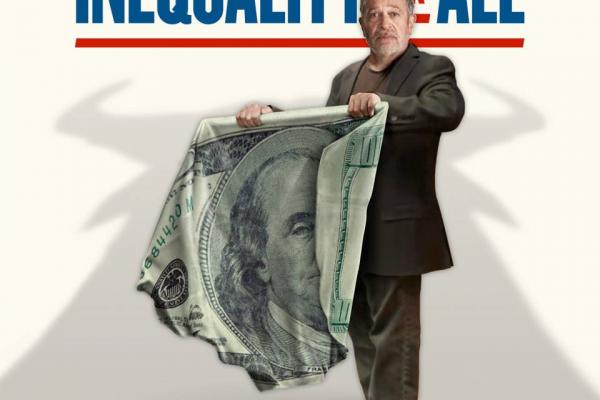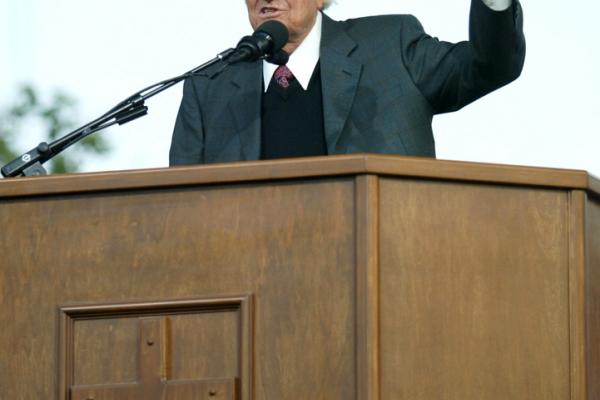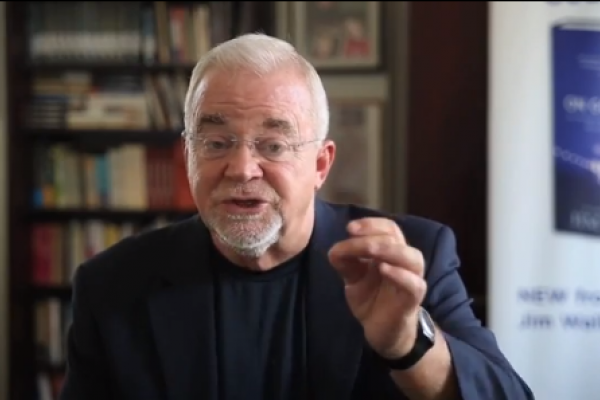The special committee of eight cardinals created by Pope Francis with the goal of dramatically reforming the Vatican’s governance got off to an “encouraging” start, the Vatican’s chief spokesman said Wednesday, with a warning not to expect regular updates.
The Rev. Federico Lombardi said Francis met with the so-called Gang of Eight, or the Vatican G-8, on Tuesday and Wednesday to seek their counsel on possible reforms ranging from pastoral work with families and the role of the laity to the prickly issue of tackling the Vatican bureaucracy.
Robert Reich pulls up in his silver Mini Cooper, quipping that he and his car are in proportion to each other. Reich, former Secretary of Labor in the Clinton administration, identifies himself with the underdog, the little man.
His new movie, Inequality for All, looks into the effects of wealth inequality in the United States. Throughout this semi-autobiographical documentary, Reich consistently leans on his self-deprecating sense of humor by poking fun at his own physical stature; he’s 4’10 ½’’ tall. The jokes, however, do lead back to the heavier issue at hand – the American worker is getting squeezed out of the middle class.
Texas high school biology textbooks battles are once again in progress in Austin, with lines drawn between those who want textbook material based only on established mainstream science and those who are anti-science. As an evangelical Christian and a botany professor at Hardin-Simmons University in Abilene, Texas, I am all too familiar with the battle for scientific authenticity in our state’s textbooks.
The Texas State Board of Education (SBOE) wields an enormous influence over which textbooks are adopted by school districts in Texas. And because the Texas market for public school textbooks is one of the country’s largest, publishers use the curriculum and content from Texas books in those they print for the rest of the nation. For this reason, what happens in Texas doesn’t stay in Texas. This is why it is so important that we ensure that publishers produce books based on mainstream science.
I just completed my first Climate Ride, journeying 300 miles by bicycle over five days with 200 other climate activists. Climate Ride began five years ago, and the riders raise money for organizations that work on sustainability and climate change. They’re also a way to spread the word about the growing and increasingly determined climate movement. For those of us who take part – by now, thousands of us have – the rides have a deep and lasting impact.
These are my reflections from the last day of the ride; you can read reflections on the first four days of the Climate Ride here.
"Revenge is not justice. Revenge is biting and devouring and life-consuming and self-indulgent. Instead of being seduced into supposedly getting back at that person, however temporarily satisfying that might feel, we are better off ... fervently seeking to be a part of God's redemption and healing." - Nancee Martin, Nancee Martin, from "Women at the Well" + Sign up to receive our quote of the day via e-mail
Pope Francis has once again given a startlingly candid interview that reinforces his vision of a Catholic Church that engages the world and helps the poor rather than pursuing culture wars, and one “that is not just top-down but also horizontal.”
The pope’s conversation with Eugenio Scalfari, an atheist and well-known editor of the Italian newspaper La Repubblica, took place at the pope’s residence in the Vatican guesthouse on Sept. 24 and was published on Tuesday.
His newest bombshell come just two weeks after the publication of the pope’s lengthy, groundbreaking interview with a Jesuit journalist in which Francis said the church was “obsessed” with a few moral issues, like abortion and homosexuality, and needed an “attitude” adjustment if it hopes to strike a “new balance” in its approach to the wider world.
We gathered at Billy Graham’s alma mater over three days to explore his ministry’s place in American history and chronicle its meaning for the future. It was a fascinating conversation, and poignant, too, as Graham struggles with poor health at home in Montreat, N.C., far from the limelight he once commanded.
But as scholars and admirers here in suburban Chicago added to the growing conversation on Graham’s legacy, a question hovers: How many people younger than, say, 60 are listening?
Jim Wallis sat down to discuss the government shutdown. His conclusion? It's unbiblical.






